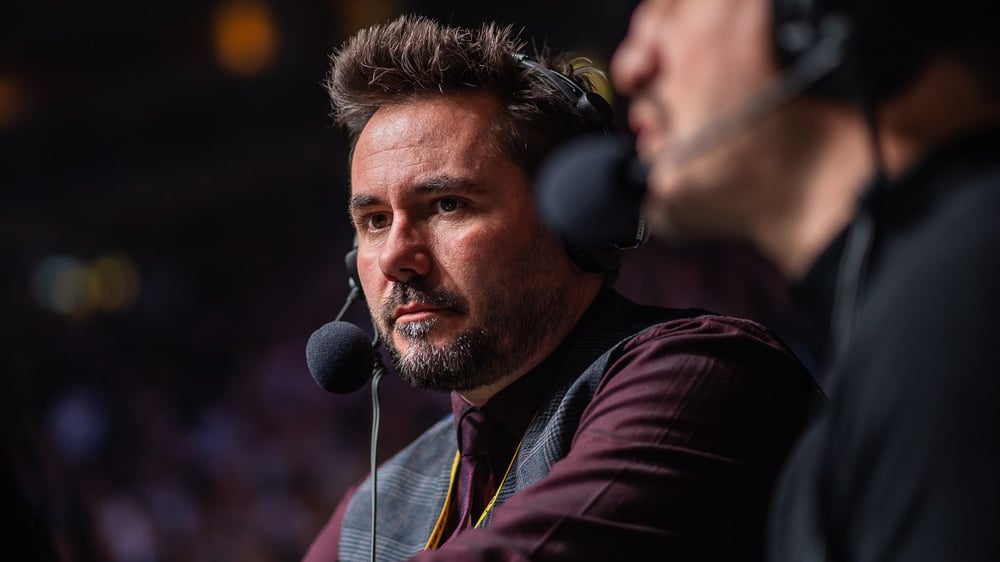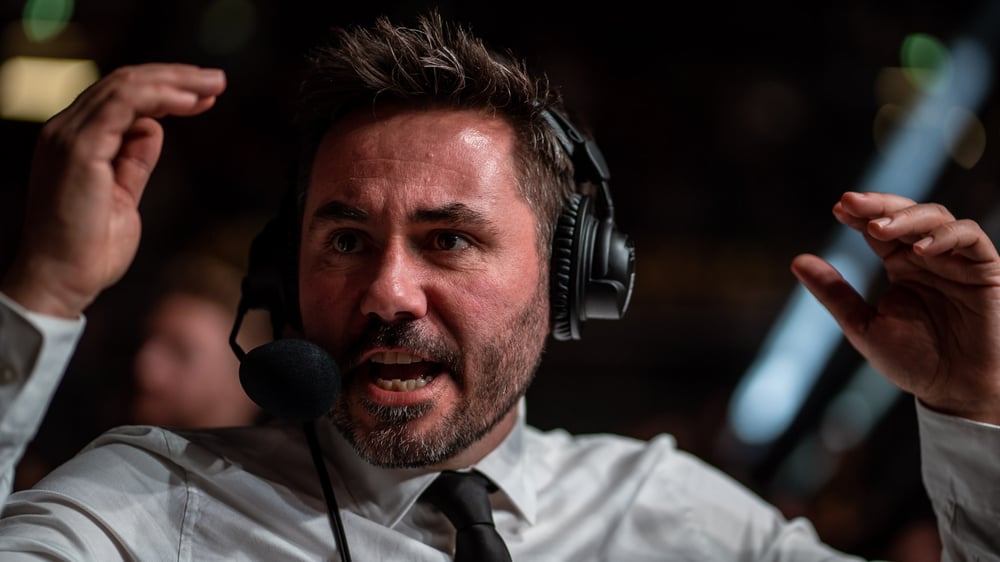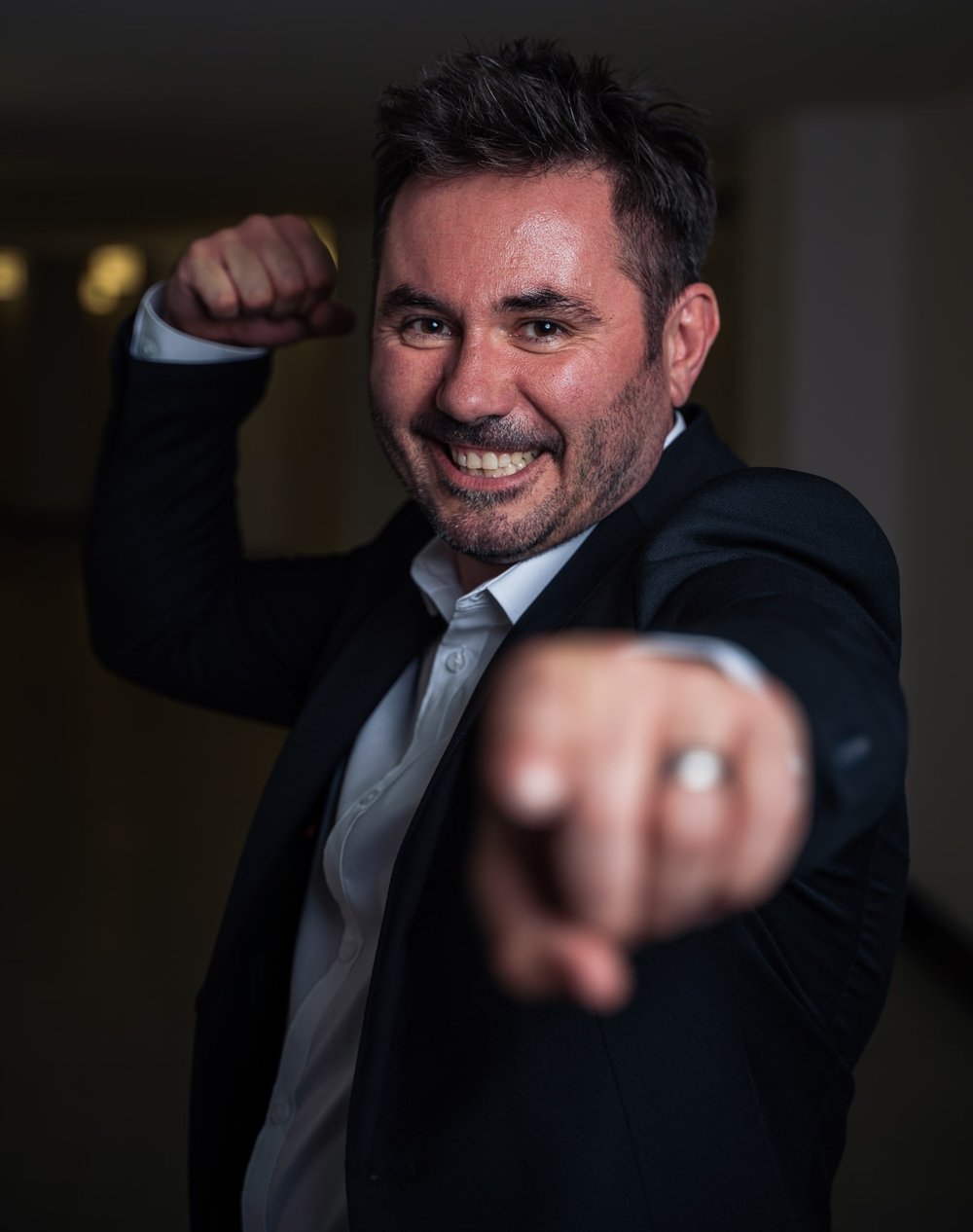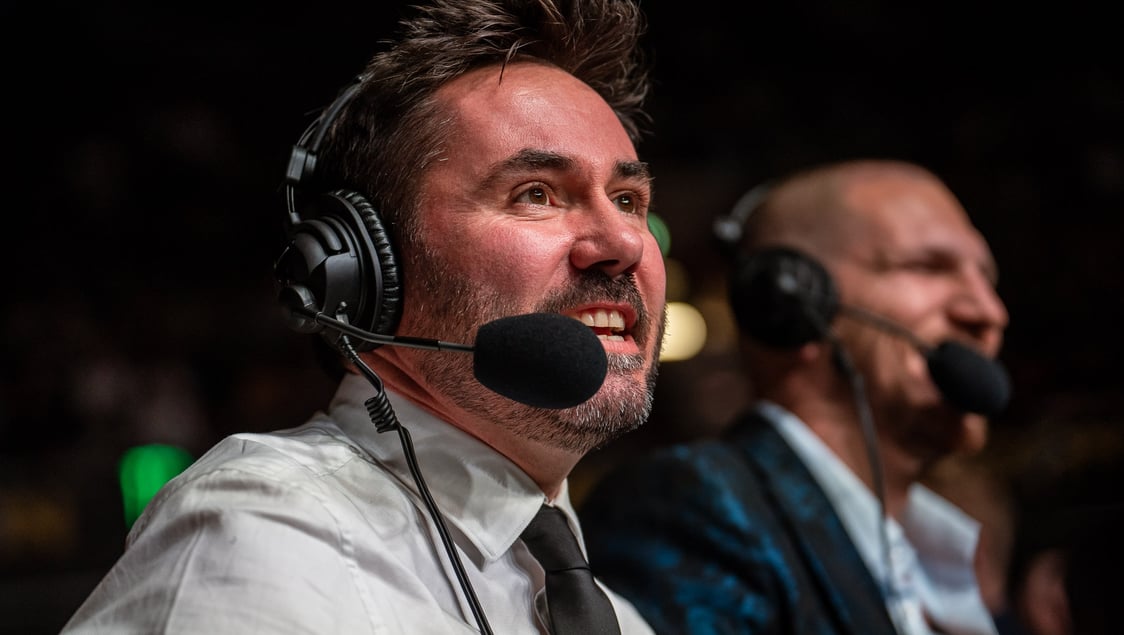
Issue 199
August 2023
The UK’s wise-cracking fight commentator tells Simon Head why he has made Oktagon MMA his home.
What was it that got you switched on to Oktagon and, eventually, becoming their commentator?
The way I got involved with them is I was I just kept seeing the big arenas, the big shows. I know (Oktagon light heavyweight champion) Karlos Vemola from the UK scene, and everything, and as a fan, as somebody that got into the sport from just loving it, was seeing these amazing shows and thinking, ‘What is it?!’ Right now, I think that’s starting to be answered by the level of talent that we’ve got coming into Oktagon.
You look at the Tipsport Gamechanger (Oktagon's €1 million welterweight tournament) roster in itself, things like that, the amount of shows they’re doing and I think it’s crept into people’s vision and now people are waking up to not just a show as far as a Czech or Slovakian show – everyone’s talking about it as a European show, and it’s got to be at the top of the pile, really.
Where does Oktagon sit in the MMA marketplace in 2023, and what makes the promotion different to the other big European promotions out there?
For me, it's the size of the shows. You can look at it as a scale like that, you can look at the expansion and the level of the fighters coming in, but I think the thing they really do well is they make it feel like whatever country they're in, they make it feel like it’s their promotion. When we're in Germany, they consider it a German promotion. In Slovakia and Czech Republic they've made it like a popular domestic thing. I think that will be the difference.
When we're talking about coming to the UK, everything they want to do is with a UK feel, with a UK slant, build and tell the UK story. So for me, the real difference is they’re catching the hearts and minds of fans, and fighters. You’ve got fighters queueing up in Germany now to try to get on that platform. They’ve got nothing like it there. It is the way they make it feel like it belongs to that country. That for me is the difference.

You’ve called fights all over the world. What leaps off the page when you compare calling fights for Oktagon compared to some of the other places you’ve called fights for?
I remember when I first got the fight card sent to me for my first-ever Oktagon show. They always send me the card and I dive into my research. It’s my favorite thing to do, to dig into these fighters’ stories and being able to tell the stories of those fighters on fight night so, even if you don’t know who they are, by the time they touch gloves, you care about, or feel something about these people in the cage.
When I got my first fight card I looked at one fight and their records weren’t amazing. There a 9-7 guy versus a 10-8 guy, and they were well up the card, too. I checked their records on Tapology and wondered why they were so high up the card. Then, when they walked out, both of these guys were greeted like rockstars by the crowd. My jaw was on the floor. I looked at their Instagrams and they had more than 100,000 followers on each of their Instagrams.
I spoke to Pavol (Neruda) and Ondrej (Novotny) after the show and asked them, ‘How do you do this?’ and they told me that it’s about telling the stories, and that’s the biggest difference with Oktagon. And it;s not just the way I react to the fights and the fighters, its the way the fans do. I was in Ostrava and David Kozma is a huge fan-favorite in Ostrava. Huge record, longest-reigning champion. But then you have Vaclav Mikulasek, “Baba Jaga,” who is a real character on the Oktagon roster. He has a mixed record, but a big personality, and at the weigh-ins the queue of people wanting to take photos with him was almost twice as big as the one for Kozma. That’s because he’s been able to be himself. They’ve sold him in a way where he has his own character, his own personality, and I think that’s missing on a lot of shows.

We had a great example of that at Oktagon 40 with Danish contender Louis Glismann. The fans didn’t really know him, but you started his story arc on the broadcast by revealing the work he does with troubled kids in his day job.
When when we get introduced to these fighters, we always try and talk to them and try and get as much as we can. But the Glismann story in particular, he one in particular, he helps some really disaffected young kids. Kids on the wrong path, a path he was once on himself.
And it's not just him, it's his team, Joachim Christensen, as well, he's part of that. And the work they do, we will tell that story, so the next time, we’ve got a hook. Glismann has also got a fantastic victory over Andrej Kalasnik. He's got the rematch against Melvin van Suijdam coming up. But, for both those guys, they both work with kids. Van Suijdam works as a primary school teacher, so day-to-day he's helping inspire kids through sport. And then you've got Louis Glismann, who is a phenomenal fighter and an absolute animal in a cage. But when I spoke to him, he said, ‘Now, my MMA career is so much more valuable than just being about belts and money, because I can use this journey, this platform, to inspire the kids to make that positive impact.’ And he did that at Oktagon 40. And now you watch. We’re going to tell this story, and we will make this guy well-known throughout Europe.

You’re a man who wears many hats for Oktagon, charging around doing all sorts of stuff ahead of events. What does a typical Oktagon fight week look like for Bryan Lacey?
With very little sleep! It always starts exactly the way any fight week for Oktagon does, with me just getting so excited from the moment I get on the plane, all the way to when the whole event is finished and I get back to the hotel room and soak in what just happened.
My fight week is lots of different meetings as far is projects and things we’ve got upcoming, and I spend a lot of focus on trying to get to know the fighters. With a lot of promotions, they will set separate time where you and the fighters will come and sit and you’ll do these pre-fight briefings. I don’t do that with fighters. Instead, I just speak to them around the hotel, whether that’s in the lift, or at breakfast, or in the gym. For me, that means I get a very relaxed person, or a very relaxed coach, and I can make a relationship that isn’t formal. And from that, hopefully I get a different insight and real personality, real stories and real stuff that I can use for my research and my notes.
Fight week is always busy, it’s always crowded. The voiceovers, the video blogs, the meetings, but the bit that I always make time in my own mind and my own preparation for is trying to have those interactions with the fighters. I’ll try to sit next to Louis Glismann at breakfast, or if I see someone like van Suijdam having a coffee or even just checking in, I’ll just introduce myself, say hello, speak to the coach and get those ‘undercover interviews’ that I can hopefully use within the broadcast.
But yeah, fight week is always absolutely crazy, but I wouldn't change a thing. I put a quote up today. I said, ‘It's a roller coaster I don't want to get off,’ and fight week is exactly that. I do a lot of work. I don't get much sleep. But I always make time on fight night to watch people have those moments and really soak up the atmosphere the energy. Those are the guys that put in the sacrifice to compete in this crazy sport, and to see them soaking it all in and getting that moment that all fighters deserve on fight night, it’s my favorite part of the job, mate.










